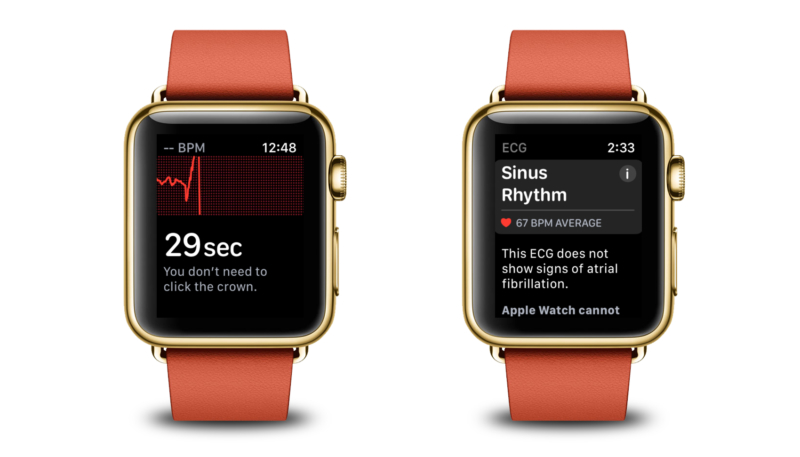The single-lead ECG functionality of the Apple Watch isn’t meant to be as informative or as reliable as the multi-lead ECGs used in hospitals and doctor’s offices, as they use multiple points of contact. However, a recent article tells of how an 80-year-old woman’s Apple Watch ECG detected a heart condition that was missed by a hospital’s ECG.
The European Heart Journal (via 9to5Mac), reports the woman arrived at University Medical Center Mainz, Germany, complaining of chest pain, irregular heart rhythm, and lightheadedness. Doctors at the hospital performed a 12-channel ECG, which revealed “no evidence for ischemia,” which is when blood flow to the heart is reduced, preventing the heart muscle from receiving enough oxygen.
The woman then showed the attending doctors her Apple Watch ECG results, which included “tracings with marked ST-segment depression.” Once they studied the Apple Watch results (An Apple Watch stores ECG results in a PDF file, which can then be shared with doctors), doctors saw evidence of myocardial ischemia, and the woman was transferred to the catheterization lab which showed “a left main stem stenosis and a left anterior descending/diagonal bifurcation lesion.” The patient was treated with “coronary artery stenting” and left the hospital the next day.
The article concludes that the Apple Watch can be used to detect myocardial ischemia:
The development of smart technologies paves the way for new diagnostic possibilities. In the case of the Apple Watch, after the mobile application is installed, the records an ECG when a finger is placed on the watch’s digital crown. A 30-s tracing is stored in a PDF file that can be retrieved from the application.
Thus, the Apple Watch may be used not only to detect atrial fibrillation or atrioventricular-conduction disturbances but also to detect myocardial ischemia. An apple a day may keep myocardial infarction away.
You can read the full report from the European Health Journal here.


